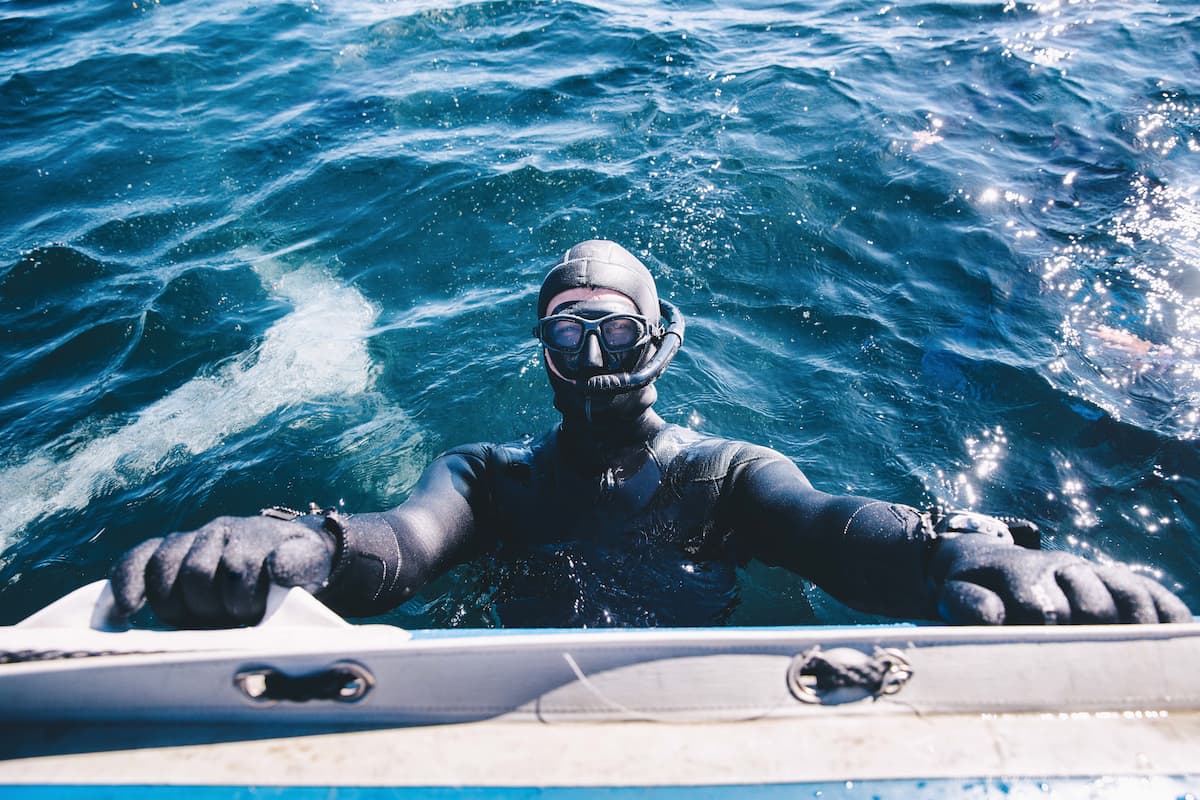The thrilling world of diving offers an infinity of adventures and breathtaking landscapes, but few experiences compare to the uniqueness and challenge of cold water diving.
This scuba diving specialization takes us beyond the confines of temperate waters, immersing us in a realm where the undisputed beauty of nature merges with extreme conditions, requiring preparation, skill, and a great passion for underwater exploration.
READ ALSO: Cave Diving Certification: A Complete Guide For Underwater Explorers
The Equipment: A Barrier Against the Cold
The starting point for those wishing to venture into these icy waters is the appropriate equipment. The threat of hypothermia is real and dangerous, making dry or semi-dry suits essential. These are not the common wet suits, but true insulating shields made of thicker neoprene or advanced materials, often paired with thermal undersuits to provide additional protection.
Gloves, boots, and thermal hoods complete the gear, essential for maintaining body heat and ensuring not only safety but also comfort during the dive.
Planning: The Key to Flawless Safety
Every dive requires careful planning, but cold waters impose additional considerations. The duration of the dive, depth, currents, and underwater visibility are just some of the variables to be carefully evaluated.
Added to this are weather conditions, which can change rapidly and significantly affect the underwater experience. Knowledge and preparation to recognize the first signs of hypothermia and know how to act in case of emergency are fundamental for every respectable diver.
Challenges and Rewards: Beyond the Thrill of Adventure
Cold water diving is much more than a mere physical challenge; it’s an opportunity to explore underwater environments that few are fortunate to see. From incredibly preserved historical wrecks thanks to the low temperatures, to extraordinary ice formations and the unique biodiversity these waters host, every dive turns into a lesson in natural history and pure wonder.
Marine life in these regions adapts in surprising ways to survive the extreme conditions, offering divers the chance to observe behaviors and species not found in any other environment. Access to these often remote sites adds a further level of adventure and exclusivity to the cold water diving experience.
Training and Competence: The Pillars of Cold Water Diving
Access to these inhospitable submerged worlds requires more than just a passion for diving; it requires specialized training. Courses dedicated to cold water diving are essential to acquire the technical skills necessary to manage the specific equipment, as well as to learn diving techniques that take into account the unique challenges posed by the cold.
The training doesn’t stop at the technical aspect; mental and physical preparation plays a crucial role. Cold water diving requires endurance, calmness, and the ability to react promptly in unexpected situations. Safety, as always in the world of diving, is the utmost priority, and adequate preparation is the foundation on which every safe and exciting underwater experience is built.
A Journey for the Brave
Cold water diving represents one of the last frontiers for underwater explorers, offering landscapes of unmatched beauty and testimonies of the past preserved in the icy depths. These dives require a dedication and preparation that go beyond the norm, but the rewards are proportional to the challenge.
Every cold water dive is an adventure, an opportunity to grow as a diver and as a person, witnessing the majesty and fragility of our planet. For those willing to face the cold, the depths offer unforgettable experiences, reminding us that, beneath the surface, there exists a completely different world, waiting to be explored.



